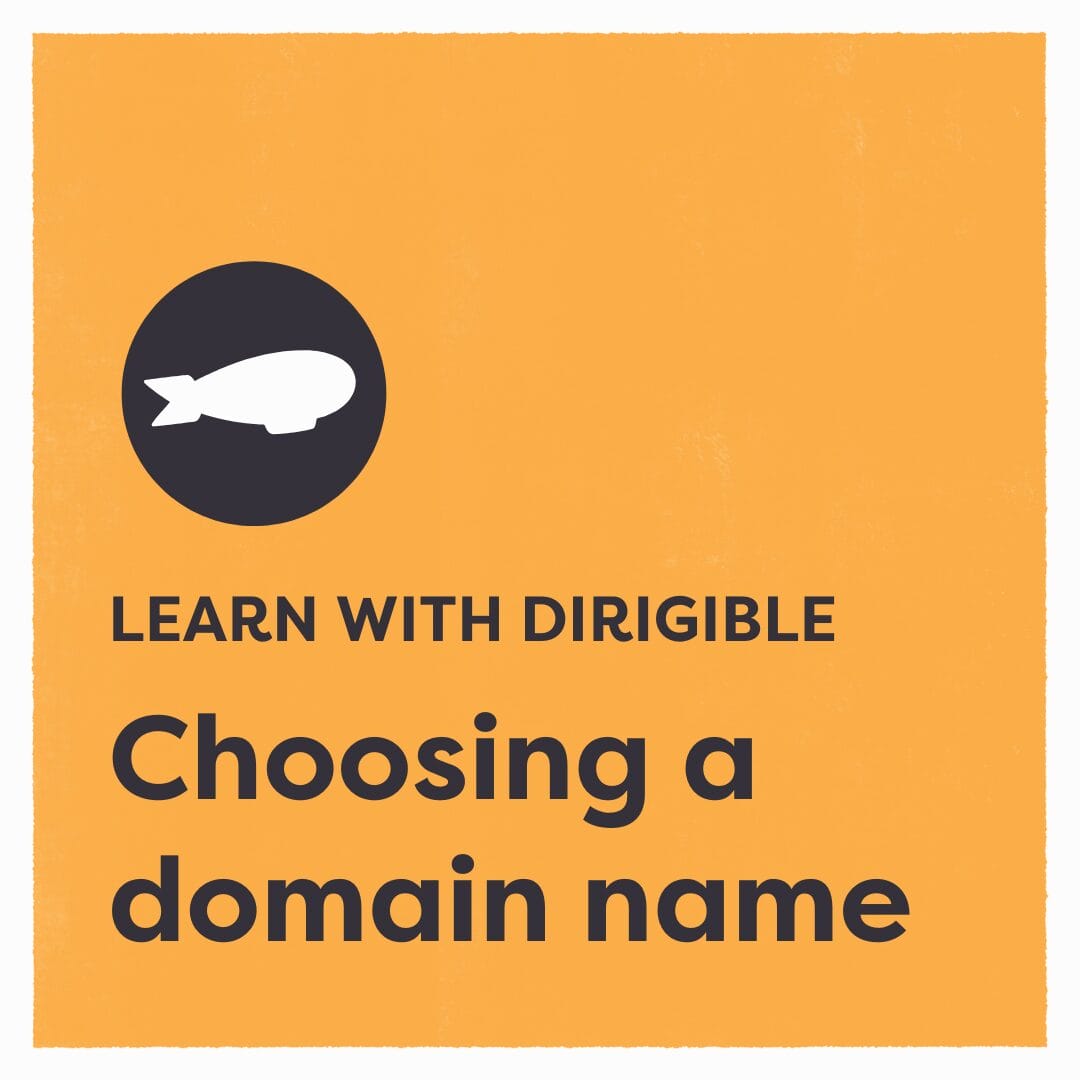
Do You Need a Domain for a Website?
Spoiler alert — the answer is YES!
When building your website, one of the first questions you might ask yourself is, “Do I really need a domain for my website?
To answer this question, let’s take a quick detour to understand what a domain is. A domain is a unique web address that identifies your website online, such as getdirigible.com. (Want to dive deeper into this topic? Read our guide to domain names.)
Why do I need a domain name for my business?
While you CAN have a website without a domain, we do not recommend it — you’ll be losing out on these essential benefits:
A domain lends professionalism and credibility to your brand.
A branded domain name (e.g., “yourcompany.com”) appears more established and legitimate than a free subdomain (e.g., “yourcompany.freeplatform.com”). It helps build trust and establish your reputation online. After all, are you more likely to order widgets from widgets.com or widgetco.freeplatform.com?
Even if you aren’t ready to build a website, you can secure your domain and set up an email address using that domain name – which is much more reassuring to potential customers and partners than using a personal email address. (We’re looking at you, [email protected].)
A domain makes your website more memorable and easy to share.
A simple, relevant, and easy-to-remember domain name makes it easier for people to find and share your website. It also simplifies your marketing and advertising efforts and encourages word-of-mouth referrals.
Domains offer SEO benefits
Owning a branded or relevant domain name allows you to create keyword-rich URLs to boost your search engine optimization (SEO) efforts. Additionally, as your domain ages and gains authority, it signals to search engines that your business is here to stay!
- More professional looking
- It can be used for email addresses as well as websites
- Easier for your audience to remember a branded domain
- Increases SEO through keywords and aging
Read our step-by-step guide on buying a domain name.
If we’ve convinced you, skip straight to the good part and follow our instructions on how to purchase your domain.
Alternatives to buying a domain name
While having a domain is recommended, there are some alternatives:
Use a free subdomain.
Platforms like WordPress.com and Blogger offer free subdomains for your website (e.g., “yoursite.wordpress.com”). However, these subdomains have limitations, such as reduced customization options and potential credibility issues.
Use your social media profiles as your online presence.
Some businesses use their social media profiles as their primary online presence. While this can work for specific industries, it comes with risks, such as limited control over the platform and the potential for account suspension.
You may not need a domain name for:
Personal or hobby websites
A free subdomain might suffice if you’re creating a casual blog or sharing content as a hobby. These websites usually have lower expectations for traffic and growth.
Temporary or Experimental Projects
A domain name might not be necessary when testing ideas or running short-term campaigns. You can use free subdomains or landing page builders to set up a temporary web presence quickly.
Having a domain name for your website offers numerous benefits, including professionalism, credibility, memorability, and SEO advantages. Plus, buying a domain is cheap and easy to do – so the downsides are minimal.
Consider your website’s goals and target audience when deciding whether a domain is right for you. If you choose to get a domain, follow best practices for selecting a registrar, choosing a domain name, and picking an appropriate extension.

Download our guide to choosing a domain name for your brand.
Published on Mar 19 2024
Last Updated on Mar 20 2024
Categories: Kindra Goehler, Small Business Websites
Tags: DNS, Domain Names
